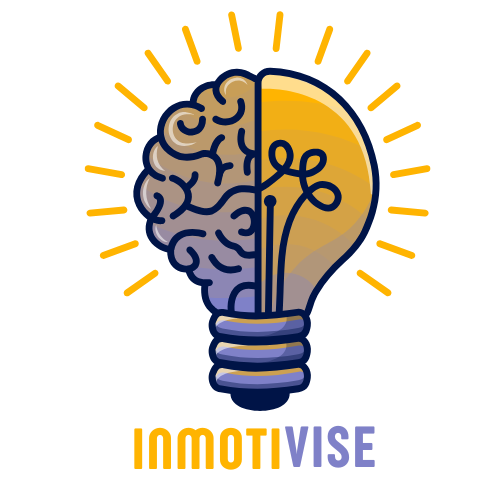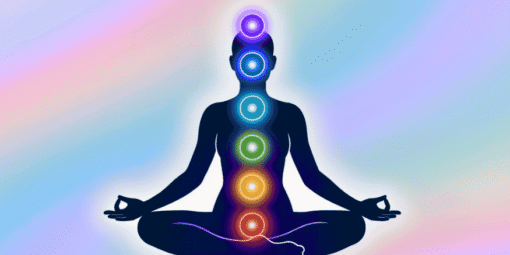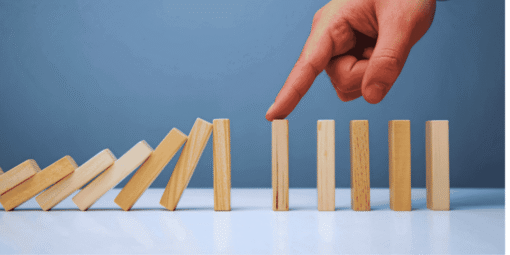Understanding Jealousy
Jealousy is a powerful and complex emotion that can deeply impact personal lives and relationships. It often arises from feelings of insecurity, fear of losing something valuable, or the desire for what others have. While it’s natural to feel jealousy at times, it can lead to negative consequences if left unchecked. By understanding its roots and learning how to manage it, individuals can turn jealousy into a tool for personal growth and relationship improvement.
- “Jealousy is the art of counting someone else’s blessings instead of your own.”
- “Jealousy, that dragon which slays love under the pretence of keeping it alive.”
- “Jealousy is the fear of comparison.”
- “Jealousy, like a storm, may disturb a moment, but it can’t uproot a foundation.”
- “Jealousy is the thief of joy in relationships. The more you focus on what you fear losing, the less you appreciate what you have.”
The Psychology of Jealousy
Jealousy is not just a fleeting emotion, but a deep-rooted psychological response. It often arises from feelings of inadequacy or fear of abandonment. Whether triggered by a partner’s attention to someone else, a friend’s success, or a colleague’s achievements, jealousy can be unsettling. Understanding why jealousy occurs and how to handle it can prevent it from negatively affecting mental health and relationships.
- “Jealousy is no more than feeling alone against smiling enemies.”
- “The jealousy of the rich is a fear of poverty. The jealousy of the poor is a fear of inferiority.”
- “Jealousy is the fear of being replaced.”
- “When you are jealous, you’re not in control. Learn to embrace it, and it will lose its power over you.”
- “Jealousy is an acknowledgment of a desire not yet fulfilled.”
Jealousy in Relationships
Jealousy plays a significant role in romantic and platonic relationships. It can either strengthen bonds through communication or drive wedges between individuals if left unchecked. In relationships, jealousy is often triggered by fear of infidelity, perceived emotional distance, or comparison to others. How partners manage jealousy can determine the health and longevity of their relationship.
- “Jealousy is just love and hate at the same time.”
- “Jealousy is the one thing you can’t fake.”
- “Jealousy is a symptom of insecurity and fear, often a result of not feeling enough in the eyes of someone else.”
- “The greatest pain that comes from love is the pain that comes from jealousy.”
- “Jealousy, if handled with trust and communication, can become a bridge, not a wall.”
Overcoming Jealousy
Overcoming jealousy is possible with the right mindset and tools. The first step is to acknowledge the emotion without letting it control you. It’s important to recognize that jealousy often stems from insecurities or personal fears. Working on self-awareness, emotional intelligence, and self-esteem can significantly reduce jealousy’s impact on daily life.
- “Jealousy is the art of saying ‘I love you’ without trusting you.”
- “Jealousy is a weakness. Once you realize it, you can build strength through self-acceptance.”
- “The first step to overcoming jealousy is acknowledging that it’s a part of your human nature. The next step is taking responsibility for it.”
- “Overcoming jealousy starts with self-compassion. Treat yourself with the love and respect you crave from others.”
- “To overcome jealousy, turn it into motivation. Let the fear of loss propel you to chieve more in your own life.”

Jealousy in Professional Settings
Jealousy is not confined to personal relationships—it also appears in the workplace. In professional settings, jealousy often arises due to competition, perceived inequality, or the desire for career advancement. Employees may feel envious of a colleague’s success or recognition, leading to negative feelings or even sabotage. Understanding how to manage professional jealousy can improve workplace dynamics and foster collaboration.
- “Jealousy is the most creative of all emotions. It will give you enough energy to change your life.”
- “Jealousy often stems from our desire to attain the success of others, forgetting that each path is unique.”
- “In the workplace, jealousy isn’t about the person; it’s about what you think they represent.”
- “The danger of jealousy in the workplace is not just a loss of focus but a loss of the team spirit.”
- “Professional jealousy can either fuel your ambition or undermine your career—how you manage it makes all the difference.”
- “Don’t let the success of others dim your own light; channel jealousy into inspiration.”
- “Competition is healthy when it fosters growth, but jealousy can poison that potential.”
- “If you feel jealous of someone’s success, it’s a reminder to assess your own growth trajectory.”
- “Jealousy breeds resentment, but collaboration breeds success.”
- “Jealousy at work is often a sign of unfulfilled desires. Focus on creating your own opportunities.”
The Role of Social Media in Jealousy
In the digital age, social media plays a significant role in amplifying feelings of jealousy. Constant exposure to curated images of others’ lives can cause individuals to feel inadequate or envious of what others seem to have. Social media platforms often present an idealized version of reality, making it easy to fall into the trap of comparison. By being mindful of social media consumption, individuals can maintain their self-esteem and avoid jealousy.
- “Social media makes us compare our behind-the-scenes with everyone else’s highlight reel.”
- “Jealousy on social media is an invitation to question what we value in our own lives.”
- “We measure our happiness by the curated lives of others, forgetting that reality is rarely as perfect.”
- “Social media is a double-edged sword: it can connect or isolate you depending on how you use it.”
- “The more time you spend scrolling through other people’s lives, the less time you spend living your own.”
- “Jealousy sparked by social media is rooted in seeing what we don’t have instead of appreciating what we do.”
- “Don’t let someone else’s filtered life create a false sense of inadequacy in yours.”
- “The constant comparison fueled by social media keeps us stuck in a cycle of jealousy.”
- “Use social media to inspire and connect, not to measure your worth against others.”
- “Social media makes jealousy easier but also highlights the need for greater self-awareness.”
Jealousy and Self-Esteem
Jealousy and self-esteem are intricately connected. When a person feels insecure about themselves or their achievements, they are more likely to experience jealousy. Low self-esteem leads to feelings of inadequacy, which fuel the desire to compare oneself to others. Strengthening one’s self-worth and cultivating a positive self-image can reduce jealousy and build a stronger sense of inner peace.
- “Jealousy is a reflection of your own self-doubt, not someone else’s success.”
- “The antidote to jealousy is self-love; when you value yourself, you won’t feel threatened by others.”
- “When you accept who you are, you free yourself from the chains of jealousy.”
- “Self-esteem is the foundation on which jealousy falls apart.”
- “A confident person is rarely jealous; they are too focused on their own path to compare with others.”
- “The less you feel worthy of love and success, the more likely you are to be jealous of those who have it.”
- “Jealousy is the gap between who you think you are and who you want to be.”
- “Strong self-esteem means you understand that you are unique and irreplaceable.”
- “Jealousy fades away when you realize that your worth does not depend on anyone else’s approval.”
- “The more you build your self-esteem, the less space jealousy has in your heart.”
Rea more Reclaim Your Worth: Build Confidence Through Self-Respect
Positive Ways to Channel Jealousy
Although jealousy is often seen as a negative emotion, it can be channeled in positive ways. Rather than letting it consume you, use jealousy as motivation to improve yourself. If you feel envious of someone’s achievements, use that feeling as a prompt to set new goals or work harder toward your own success. By transforming jealousy into inspiration, you can turn a negative feeling into a powerful tool for self-improvement.
- “Jealousy is a powerful motivator, if you can learn to channel it into action rather than resentment.”
- “Use jealousy as a signal that you desire something—then go after it with all your energy.”
- “Instead of resenting someone’s success, learn from it and let it drive you toward your own.”
- “Jealousy can inspire action if you focus on your own growth instead of comparing yourself to others.”
- “Channel jealousy into motivation to improve, not into bitterness that holds you back.”
- “Transform jealousy into creativity. Let others’ success push you to create something unique.”
- “Let jealousy be a spark, but not the flame. Let it ignite the desire to become better.”
- “Jealousy is energy. Use it to fuel the pursuit of your own dreams.”
- “Feeling jealous? Turn that energy into fuel to propel yourself forward.”
- “Jealousy is the fire, but your actions are the fuel that turns it into something productive.”

Jealousy and Personal Growth
Jealousy, when approached with the right mindset, can be a catalyst for personal growth. Instead of viewing jealousy as a weakness or something to be ashamed of, recognize it as an opportunity for self-reflection. Jealousy often points to areas in our lives where we feel unfulfilled or insecure. By embracing these feelings and using them as a tool for growth, we can improve our emotional well-being and relationships.
- “Jealousy can be the mirror you need to reflect on what you’re missing in your own life.”
- “Every emotion, even jealousy, can be used to build a stronger, more authentic version of yourself.”
- “Personal growth begins the moment you accept your jealousy and transform it into self-improvement.”
- “Jealousy is a clue that something needs to change within. Use it to become better, not bitter.”
- “Personal growth happens when you confront jealousy with self-awareness and choose to learn from it.”
- “Jealousy is not your enemy—it’s an opportunity to grow if you use it wisely.”
- “The pain of jealousy can lead to the gain of personal insight if you allow it.”
- “Turn jealousy into a stepping stone toward your personal evolution.”
- “Growth happens when you stop comparing yourself to others and start working on your own development.”
- “Use jealousy to fuel your journey of self-discovery, turning its negative energy into positive growth.”
Read more about Personal growth: Understanding Self-Motivation: Key to Success and Growth
Conclusion
Jealousy is a complex emotion that affects many aspects of our lives, from personal relationships to professional growth. While it can be a destructive force, it also holds potential for self-reflection and positive change. By recognizing the roots of jealousy and adopting healthy strategies to address it, we can transform this emotion into a tool for self-improvement. Understanding and managing jealousy is key to building stronger relationships, enhancing personal growth, and fostering emotional well-being.
FAQs
- What causes jealousy in relationships?
Jealousy often arises from feelings of insecurity, fear of abandonment, or the fear of losing something important to you. It can also stem from past experiences or comparison with others. - How can I overcome jealousy in a relationship?
Open communication, self-reflection, and building trust are essential for overcoming jealousy in relationships. It’s important to address insecurities and practice self-love. - Does jealousy affect mental health?
Yes, excessive jealousy can lead to anxiety, depression, and strain on relationships. It’s crucial to recognize and address jealousy constructively to prevent mental health issues. - Can jealousy be a sign of love?
A small amount of jealousy can indicate emotional investment, but excessive jealousy often stems from insecurity or possessiveness, which can harm relationships. - How can social media affect jealousy?
Social media can fuel jealousy by presenting an idealized version of other people’s lives. Constant comparison can lead to feelings of inadequacy and envy. It’s important to manage your social media consumption to maintain emotional balance.
read more: Quotes About Friendship: Trust, Love and Deep Connection







